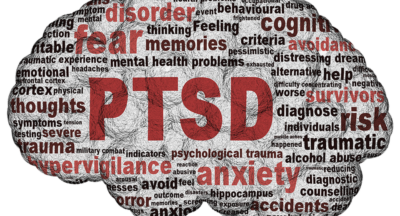
Understanding the mystery of inherited trauma: Identifying signs and navigating triggers. The difficulties individuals encounter in addressing PTSD stemming from isolated incidents.

Understanding inherited trauma involves delving into the concept of intergenerational transmission of trauma, where the emotional pain and unresolved issues from past generations are passed down to subsequent ones. This phenomenon is rooted in the idea that traumatic experiences can leave lasting imprints on individuals’ psyches, affecting not only their own mental health but also that of their descendants. Inherited trauma can manifest in various ways, including through behavioral patterns, emotional responses, and relational dynamics.
Identifying signs of inherited trauma requires a nuanced understanding of how past experiences continue to influence present-day behaviors and attitudes. These signs may include recurring themes in family narratives, persistent feelings of fear or anxiety, difficulties forming healthy attachments, and patterns of self-destructive behavior. Additionally, individuals may exhibit symptoms of post-traumatic stress disorder (PTSD) without directly experiencing the traumatic event themselves, indicating a potential link to inherited trauma.
Navigating triggers associated with inherited trauma can be challenging due to their often subtle and subconscious nature. Triggers are stimuli or events that evoke intense emotional or physiological reactions linked to past traumatic experiences. These triggers can be external, such as certain sights, sounds, or smells, or internal, such as intrusive thoughts or memories. Recognizing and managing triggers requires developing self-awareness, learning coping strategies, and often seeking professional support to process unresolved emotions and trauma-related responses.
The complexities of inherited trauma extend beyond individual experiences to encompass familial and cultural narratives. Family systems theory suggests that patterns of behavior and relational dynamics within families can be influenced by past traumas and unresolved conflicts. These dynamics may perpetuate cycles of dysfunction and exacerbate the impact of inherited trauma on subsequent generations. Cultural factors also play a significant role in shaping how trauma is experienced and transmitted, with certain communities disproportionately affected by historical traumas such as colonization, slavery, or genocide.
Addressing PTSD stemming from isolated incidents involves understanding the unique challenges faced by individuals who have directly experienced traumatic events. PTSD is a mental health condition characterized by persistent symptoms such as intrusive thoughts, flashbacks, hypervigilance, and avoidance behaviors. These symptoms can significantly impair individuals’ functioning and quality of life, making it essential to seek appropriate treatment and support.
Individuals with PTSD may face barriers to accessing care, including stigma surrounding mental health issues, lack of awareness about available resources, and financial constraints. Additionally, cultural factors and societal attitudes toward trauma and mental health may influence individuals’ willingness to seek help and disclose their experiences. Overcoming these barriers requires destigmatizing mental health issues, increasing access to culturally competent care, and promoting education and awareness about trauma and its effects.
Effective treatment for PTSD often involves a combination of therapy, medication, and support from loved ones. Cognitive-behavioral therapy (CBT), eye movement desensitization and reprocessing (EMDR), and exposure therapy are among the evidence-based approaches used to address PTSD symptoms. These therapies aim to help individuals process traumatic memories, challenge distorted beliefs, and develop coping skills to manage distressing symptoms.
To sum up what was discussed earlier in this article, understanding inherited trauma and addressing PTSD stemming from isolated incidents require a multifaceted approach that acknowledges the interplay of individual, familial, and cultural factors. By recognizing the signs of inherited trauma, navigating triggers, and accessing appropriate support and treatment, individuals can begin the journey toward healing and resilience. It is essential to promote awareness, reduce stigma, and advocate for accessible and culturally responsive mental health care to support those affected by trauma.

dr.dan
Related Posts
The hidden signs of unprocessed trauma: What to look for, how to understand them and stay away from denial at all cost. The many difficult challenges ahead!
Unprocessed trauma can cast a long shadow over one's life, often manifesting...
Misdiagnosed mysteries: Elevated ego vs narcissistic personality disorder.
The Covid-19 pandemic has unfortunately worsened the mental well-being of...
Exploring the upsides and downsides of excessive romantic dependence in new or existing relationship
Examining the advantages and disadvantages of being overly emotionally attached...
Are you in the right MOOD to eat healthy FOOD? How can mental health affect your eating habits in the positive or negative way: Is the fast food industry subliminal messages affect our moods and how can we fight back? Psychological warfare explained!
Psychological warfare entails the strategic deployment of propaganda and...




